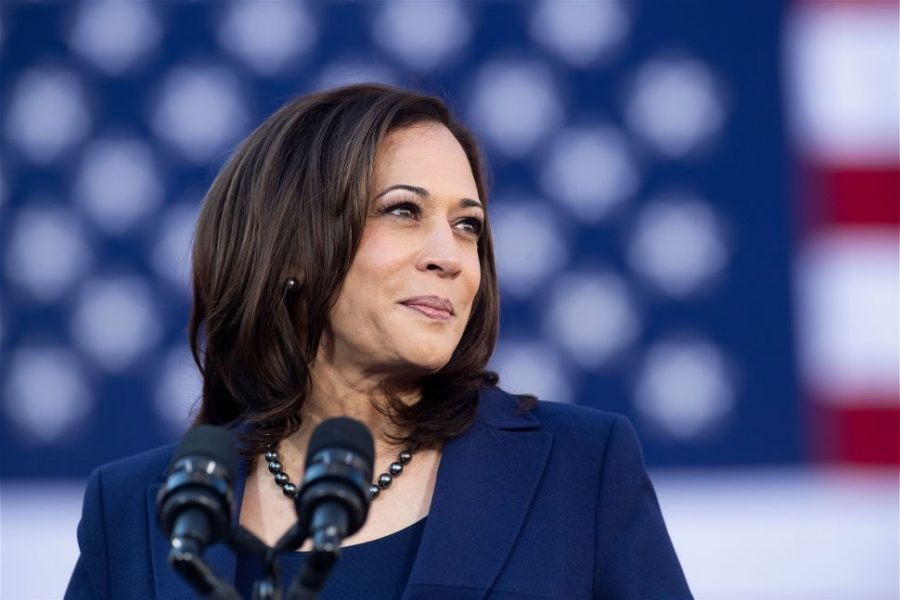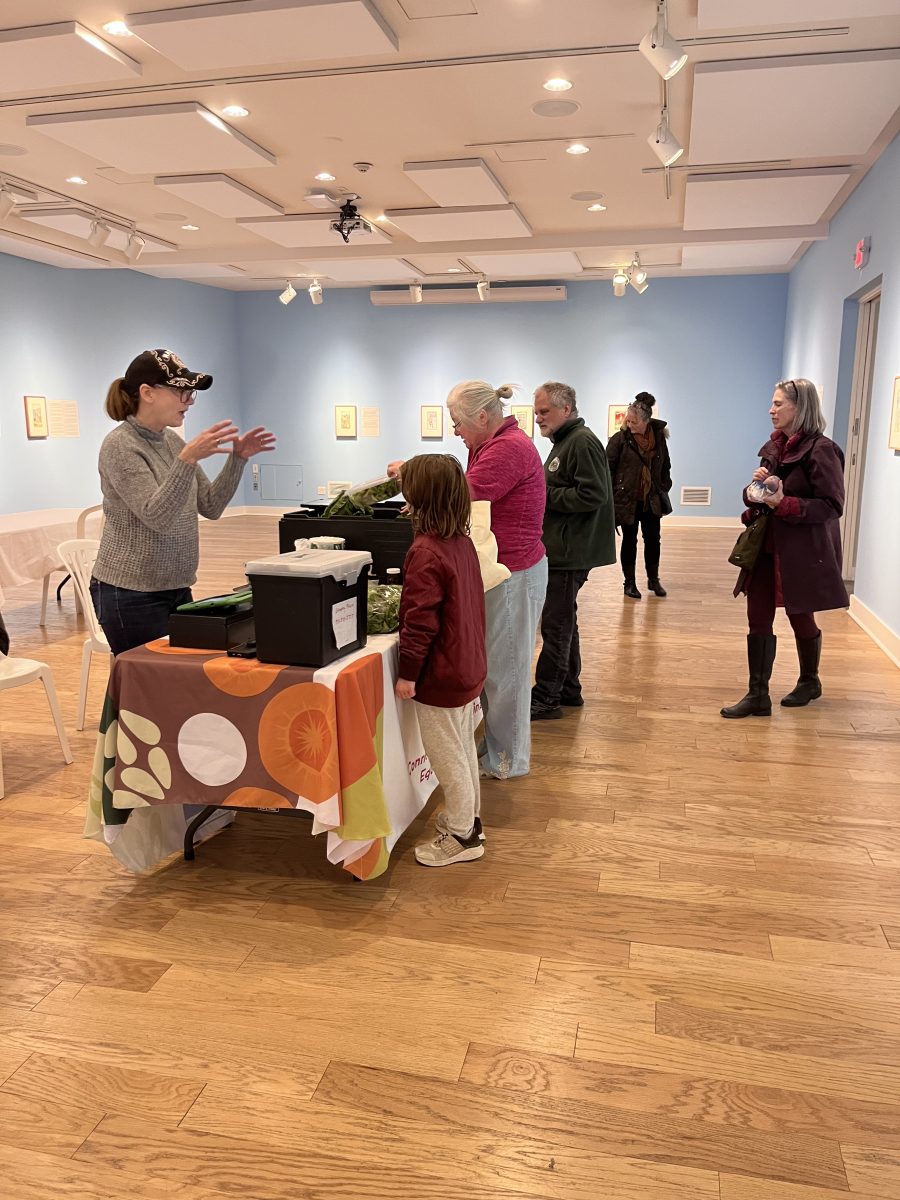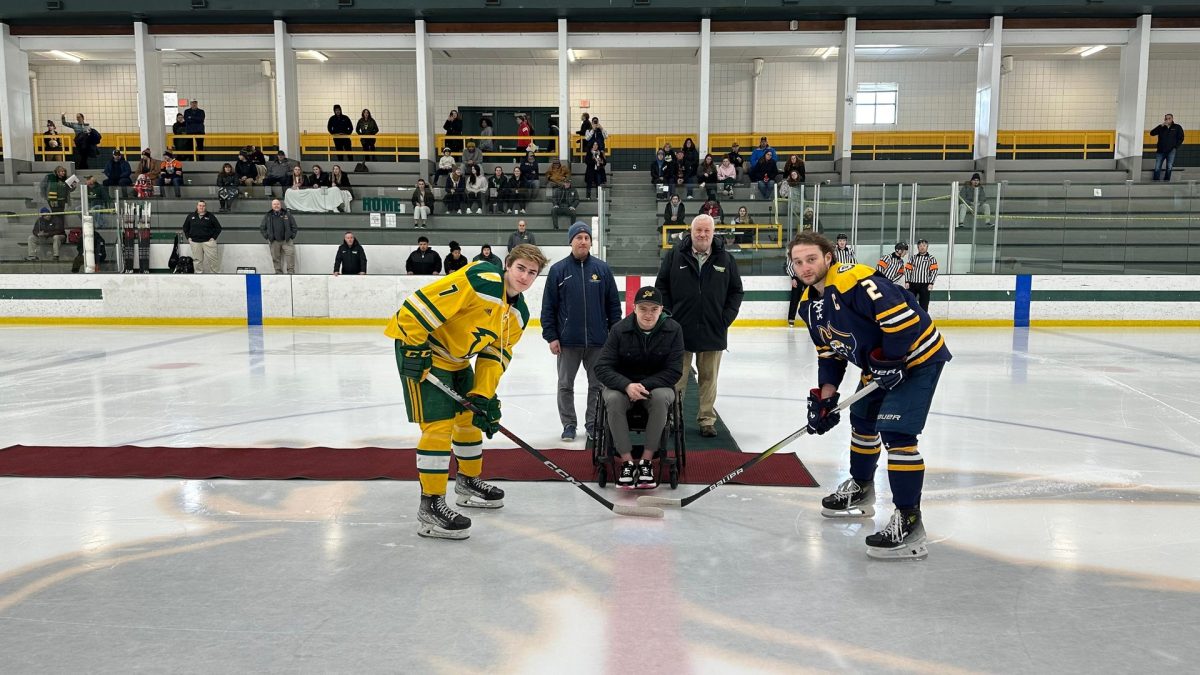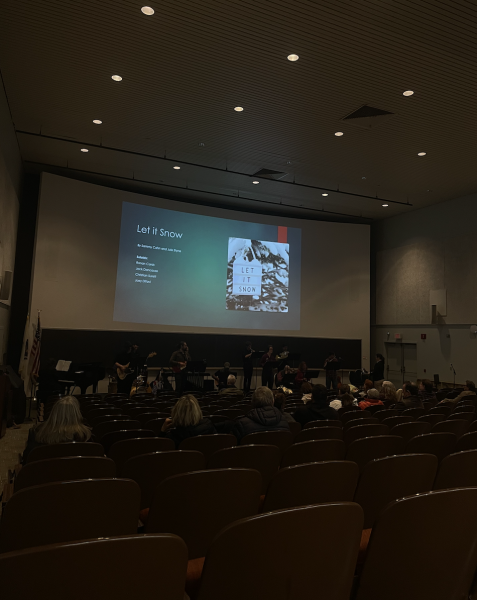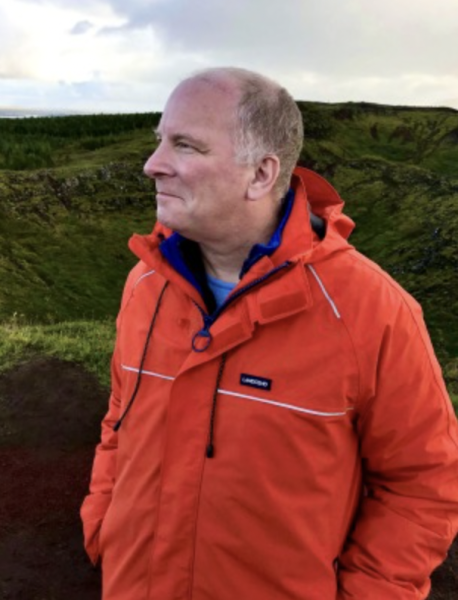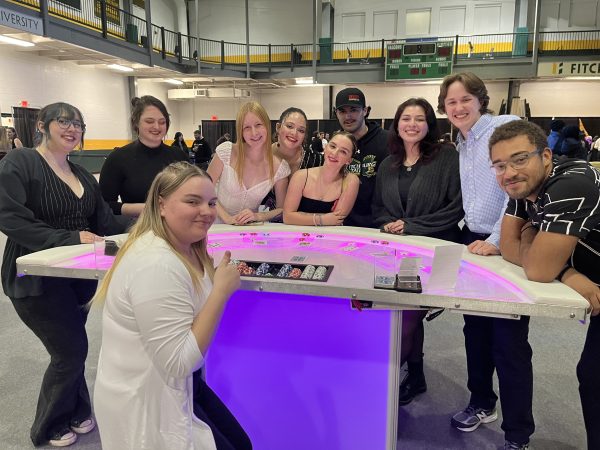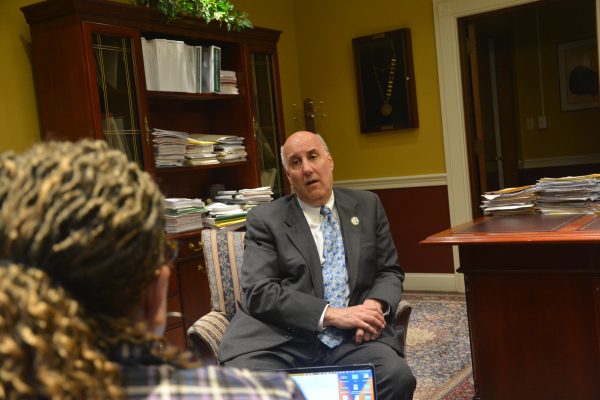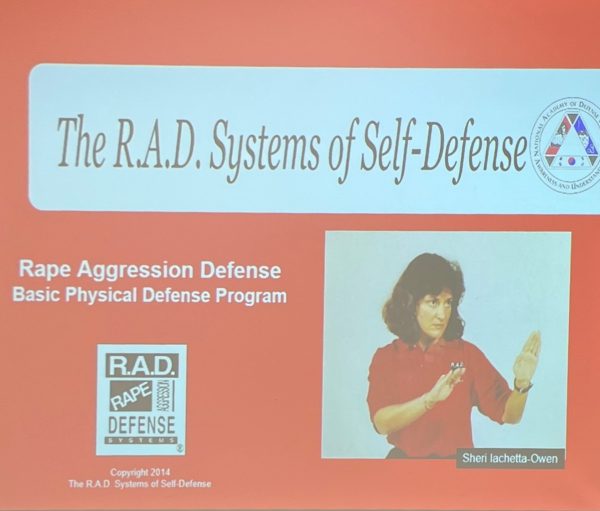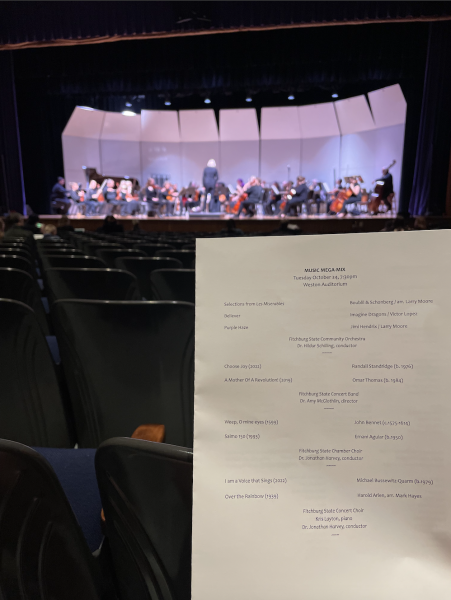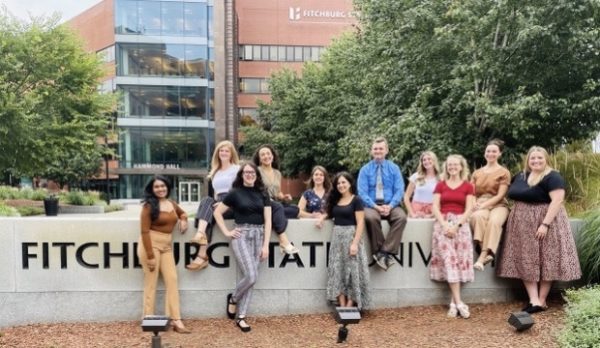Sharing Your Authentic Self: Celebrating Black Women in Politics at Fitchburg State
Speakers at the event referred to Shirley Chisholm, Carol Mosely-Braun, and Kamala Harris as role models and sources of inspiration. Photo courtesy of Noah Berger/Getty Images.
March 8, 2021
-Brittany Eldridge
Faustina Cuevas, who works in the Center for Diversity and Inclusiveness at Fitchburg State, assembled a presentation highlighting the historical milestones, obstacles, and setbacks faced by women of color running for political office. Tabitha Kamau, a Fitchburg State alumna, and former Vice President of the Black Student Union, assisted Cuevas in running this event. The virtual event was held on March 2 at 3:30 P.M. on Google Meets. The event featured guest speaker Eunice Zeigler. She is a Methuen City Council member, grant writer, and artist.
Cuevas stated that becoming involved with the government as a woman of color, or as a member of any minority group, does not have to start at the macro level. She said that, when considering women in politics, individuals tend to focus on the federal government. Yet, local leadership roles, according to Cuevas, should be considered and supported, as well. Eunice Zeigler, for example, works on the Methuen City Council and focuses on community engagement. Other smaller leadership roles could entail running for student government at your university, holding up signs, supporting candidates who share your beliefs, and simply having a conversation with others in your community. The keys to success in leadership roles as a woman of color, according to Cuevas, are in canvassing and door-knocking.
Women have made strides in politics at the macro level as a result of both the Women’s Suffrage Movement and the passing of the 15th and 19th constitutional amendments. Cuevas said that the passing of amendments, alone, did not result in women of color gaining leverage in politics. Cuevas stated that changes occurred due to the resilience of these women who “fought for a seat at the table.” One of these women was Shirley Chisholm, the first African American to serve in Congress. Others included Carol Moseley-Braun, the first African American United States Senator, and Kamala Harris, the current Vice President of the United States, who has gained the highest ranking a Black and Asian woman has ever received. Both Cuevas and Zeigler referred to these women as their role models and a source of inspiration.
When considering the power that Black women have over politics, one case to consider is that of President Biden winning Georgia in the 2020 election.The Democrats’ winning Georgia, according to the New York Times, “validated the political vision and advocacy of a group of Black women who have led a decades-long organizing effort to transform the state’s electorate.” This change occurred, as well, thanks to leaders reaching out to Black and LatinX communities and encouraging individuals in these communities to vote. For the past decade, the New York Times stated, Black female leaders created their own structures to oppose conservative state parties. In addition, they canvassed and door-knocked regularly. Black female leaders played large roles in organizations designed to educate voters, such as Georgia Stand Up and The People’s Agenda.
In addition to canvassing and door-knocking, Zeigler stated the importance of leaders holding open conversations about race and differing viewpoints. She shared a story in which one of the residents in her community invited her to his house to talk. They did not agree on every political issue, Zeigler said, but they were able to find common ground. He was under the impression that race was no longer a problem in the region, but Zeigler stated that previously found herself in situations, particularly in school, where she was placed into the category of “other” and was discouraged from some educational pursuits. She also held open conversations about race in her community. These conversations were recorded and shared on Facebook Live and were meant to build a space where others could “talk about a time where they felt less than, or othered.”
Zeigler developed leadership skills by participating in peer leadership roles and sports teams in her youth. She carried out many roles as a student at Methuen High School, and obtained both a Bachelor’s Degree in Political Science and a Master’s Degree in Economic and Social Development of Regions at the University of Massachusetts Lowell. Zeigler ran for election to the Methuen City Council in 2017. She did so after volunteering on other individuals’ campaigns and being encouraged to run for election, herself.
Yet, Zeigler said she faced a “mixed bag” of responses. No woman of color had ever run for election to the Methuen City Council, before. Some told her she could try, but that she should not be disappointed when she lost. Others tried to sway her to run for the school committee, instead. Yet, Zeigler knew she was qualified for the job, so she wrote out the pros and cons of running, and found that “the pros outran the cons.”
Zeigler explained that finding a platform you are passionate about and sharing your interests with the community are important aspects of both community engagement and holding a leadership role. She said she shares “every authentic part” of herself with her community. This includes her interest in community engagement and experience with grant writing, but also her exploration of the arts. Zeigler is both a singer and a songwriter, so she often shares these talents with the community.
When asked about how to start a political platform, Zeigler brought up the importance of utilizing individual talent. She said that a person should run for this particular position in office because no one else can accomplish what you will. And, according to Zeigler, this is possible because this person has the talents and special skills for this position, whether they are artistic skills, leadership skills, or other skills.
Students, especially those in minority groups, may have an interest in acquiring a leadership role, or getting involved in community service. Zeigler said that they ought to “learn the lay of the land,” which, in most cases, will consist of local municipalities. Students should research the types of positions they are interested in. For example, Zeigler stated that some appointments are made by filing paperwork, which may be ideal for those who do not wish to run for office.
By scanning local newspapers, conducting Google searches, and looking up websites that feature local news, those interested in leadership roles can learn about the platforms of candidates in their area. Students can reach out to their town’s City Clerk, which supports the Board of Election Commissioners. News regarding local election candidates are often posted on local Facebook pages and city websites.
For those unfamiliar with canvassing and door-knocking, they can search for canvassing guides on the Internet, such as the National Democratic Institute’s “Campaign Skills Trainer’s Guide.” This guide, created by a non-profit organization, includes checklists for items necessary for canvassing, outlines how to write a canvassing script, and describes how to categorize the candidate’s supporters.
For those looking for inspiration in a literary format, they can read Shirley Chisholm’s novel, Unbought and Unbossed, in which she narrated how she became the first African-American Congresswoman of the United States. Another book of interest is Your Next Level Life, Karen Arrington’s self-help guide for women of color pursuing careers in business and politics. Podcasts centered around women of color and women in politics include Women Amplified, The Brown Girl’s Guide to Politics, and #Secure the Seat.
Fitchburg State’s Center for Diversity and Inclusiveness, according to the Fitchburg State Website, promotes inclusiveness, education, and acceptance through the university’s various organizations, events, and themed months. The Center for Diversity and Inclusiveness is holding two events in April. The first, on Apr. 6, is a Ted Talk and Tea event addressing reactions to microaggressions. The second event, on Apr. 15, is a continuation of a Ted Talk and Tea on limiting biases.


